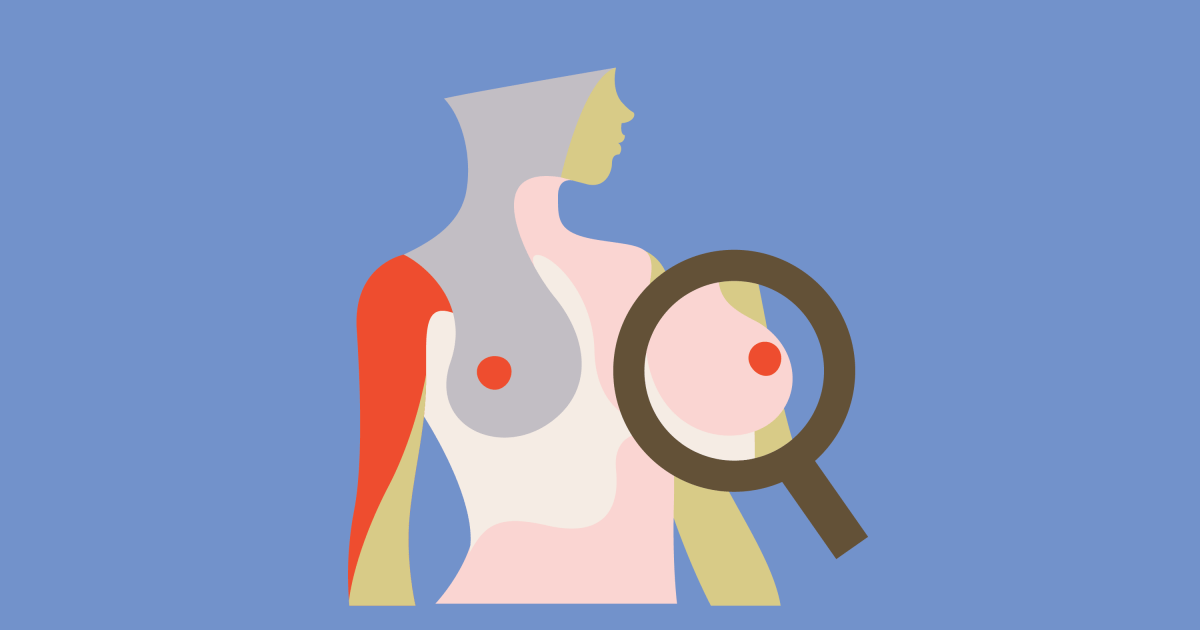Prioritizing Your Mental Health During & After Cancer
- New research has found that nearly one-third of breast cancer patients experience temporary or lasting symptoms of depression, both during and after treatment.
- One SurvivorNet experts says: “This critical study highlights what many oncologists and patients already know: helping women cope during and thrive after a breast cancer diagnosis includes addressing not only the physical trauma of the disease but equally each patient's emotional experience with the disease.”
- If you're going through a cancer battle, it's essential that you reach out for help if you're experiencing symptoms of anxiety and depression. Many people diagnosed with cancer understandably find themselves mentally overwhelmed and scared.
The study, published today (April 14) in JAMA Network, included thousands of women in France who were 18 years or older with invasive stage 1 to 3 breast cancer and had no previous breast cancer treatment. Breast cancer is the most common cancer in women in the United States, except for skin cancers, according to the American Cancer Society. Breast cancer accounts for about 30% (or 1 in 3) of all new female cancers each year.
Read MoreRelated: Stress and Anxiety for Cancer Patients During Covid-19
The study concluded that "improving early identification of women at risk of developing long-term or delayed depression is therefore critical to increase quality of life and overall survival."
Breast Cancer & Depression: Study Details
For this study, a total of 4,803 women with breast cancer (2,441, or 50.8%, of whom were stage 1 breast cancer patients) were analyzed. The median age for this study was 56 years of age.
The women were then split into six groups that best fit their likelihood of experiencing depressive symptoms: no expression of symptoms (54.8%), intermediate worsening (22.4%), intermediate improvement (15.4%), delayed occurrence (4.2%) and stable depression (3.2%).
Researchers found there were a variety of factors at play when it came to whether a patient experienced depression. These factors include:
- Having dependent children
- Lower household income
- Cancer stage
- Family history of breast cancer
- Previous psychiatric hospitalizations
- Obesity
- Smoking status
- Higher levels of fatigue
- Depression at diagnosis
The study aimed to “characterize toxicities over a 5-year period” following stage 1 to 3 primary breast cancer treatment and found that about one-third of women with this type of cancer were likely to experience temporary or lasting symptoms of depression, both during and after treatment.
Prioritizing Your Mental Health During & After Cancer
If you're facing cancer, it's essential that you reach out for help if you're experiencing symptoms of anxiety and depression. Many people diagnosed with cancer understandably find themselves mentally overwhelmed and scared. Some may even experience the five stages of grief.
Treating Depression After a Cancer Diagnosis
"The feelings that come up after a breast cancer diagnosis can sometimes mimic the five stages of grief," Dr. Marianna Strongin, a licensed clinical psychologist and founder of Strong In Therapy Psychology, told SurvivorNet. (Dr. Strongin is also a SurvivorNet contributor.) "Patients may experience, in any order, denial, anger, bargaining, sadness, depression and, finally, acceptance."
But, she added, "as patients move through these stages, it's especially important to offer them support and a safe space to experience these stages fully so that they don't just sit in one stage such as depression."
If you're having feelings of depression or you're overwhelmed after your cancer diagnosis, get connected with a mental health professional as soon as possible. There's support available to you, and the better you feel mentally, the more ready you will be for treatment.
"Psychoeducation about the typical emotions and stages is extremely helpful for patients as it can help them feel less alone and also give them an understanding that all emotions are temporary and manageable with proper treatment," Dr. Strongin said.
"Ultimately, this can improve their mental health symptoms which has been shown to have a positive impact on the outcome of breast cancer treatment."
Mental health issues like clinical depression can negatively impact cancer treatment. This makes it all the more vital to seek immediate support or to ask your loved ones to help you get support if you're too overwhelmed to do it on your own.
Contributing: Anne McCarthy
Learn more about SurvivorNet's rigorous medical review process.


